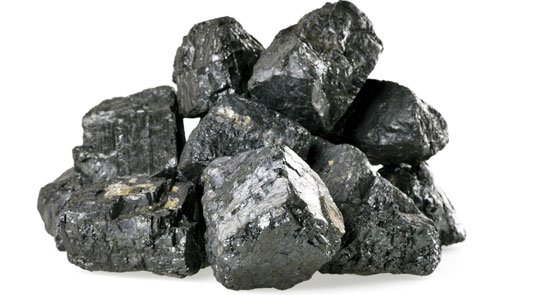
Coal upgrade technologies promoted by White Energy and its affiliates have been extended at least $25 million in public grants over three decades, plus valuable land and mining concessions, without results.
The “Ultra Clean Coal” and “Binderless Coal Briquetting” technologies, supported over many years by the CSIRO’s energy division, have soaked up hundreds of millions in public and private funds.
A Crikey investigation has identified a string of fruitless Commonwealth and state grants to support UCC or BCC since as far back as 1987, when then-CSIRO chairman Neville Wran, former Labor premier of NSW, announced a new technology that “if successfully commercialised, would give Australia a big marketing edge over other coal-exporting nations”. Wran described UCC as a “marvellous Christmas present from CSIRO to the Australian coal industry”.
The UCC technology — which involved treating coal ground down to below 0.5mm to remove non-combustible impurities or “ash” so it could be used in power generation or transport applications as a substitute for oil or gas — was promoted by Auscoal, an unincorporated joint venture between White Industries (a forerunner of White Energy), the CSIRO and the Australian Coal Industry Research Laboratory. The BCB process, pressing the micronised coal into briquettes, resulted from the trials as a way of transporting UCC.
The BCB technology is owned by White Energy, chaired by Travers Duncan, who is facing possible criminal charges after the ICAC found he had engaged in corrupt conduct during the aborted half-billion-dollar acquisition of Cascade Coal by concealing the involvement of the family of former Labor minister Eddie Obeid. Duncan is seeking a judicial review of the findings in the Supreme Court. White Energy is languishing on the Australian Stock Exchange trading at 22c — below its cash backing of 33c a share — after a joint venture to build a BCB plant at Tabang in East Kalimantan failed in 2011, causing losses of at least $US138 million — now the subject of a legal dispute in Singapore.
Crikey‘s investigation calls into question why CSIRO has continued over so many years to lend credibility and research funding to the UCC and BCB technologies. As Crikey reported last week, White Energy investors are also questioning why a further $40 million should be invested to build a new BCB plant in the US.
Public grants to BCB and UCC over the years include:
- A $517,000 grant in 1989 from the National Energy Research Development and Demonstration Council, plus a $160,000 NSW grant;
- A $13.5 million Commonwealth START grant in 2000, announced by then industry minister Nick Minchin, to build a pilot UCC plant near Cessnock;
- A $4.3 million grant announced by then (and now) industry minister Ian Macfarlane in 2007 to build a BCB plant, also at Cessnock;
- The NSW government gave 70 hectares freehold land at Cessnock worth $1.9 million in 2007 to build a UCC demonstration plant; and
- The NSW Department of Trade and Investment gave further grants worth $5 million in 2010-11 and 2011-12.
An earlier scheme to develop a “super coal” was promoted by Energy Recycling Corporation, which had an agreement with White Industries and was given a coal exploration licence covering 270 square kilometres at Ulan in the Hunter Valley by the Wran government in 1979, against the recommendation of the energy department. The licence was revoked in 1981 after ERC failed to make progress with its “super coal” technology, and sensational fraud allegations were levelled at the company in the State Parliament.
Then-shadow energy minister Ted Pickering told Parliament the “super coal” process was “fraudulent, not only on advice received from the most eminent scientists in the coal mining industry, but also on the basis of an investigation conducted by a committee appointed by the previous minister for mines”.
A later iteration of similar ERC technology, CENFuel, was touted in a prospectus for Asian Energy in 1995 — promoted by Australian astronaut Paul Scully-Power — but the $28 million float did not proceed. Private backers over the years have included BHP Billiton, which extended a $35 million convertible loan to White Energy to fund its BCB program in 2007.
The UCC technology was sold to Felix Resources when it bought parent entity White Mining, then chaired by Duncan, in 2005 in a scrip transaction worth roughly a quarter-of-a-billion dollars — an independent expert valued UCC at between $5 million and minus $1 million at that stage — and was subsequently sold to Yancoal when it bought Felix for $3.5 billion in 2009. Yancoal suspended the UCC trial last year.
Yancoal’s acquisition of Felix vaulted Duncan — dubbed “Mr Coal” — onto the BRW Rich List, where he is ranked the 68th wealthiest Australian with an estimated personal fortune of $680 million.








Absolutely sterling effort Paddy, please thank all concerned on the reader’s behalf.
“Clean Coal”… nice idea… never worked…basically more coal industry subsidies to no effect… move on to funding the renewable energy R&D, subsidy + government/taxpayer support please!
Anyone in government or industry able to resist the whining of the coal industries… they’ll get my vote!
When is there to be an end to this insanity? Anything to do with coal is yesterdays technology yet, as this article attests, snake oil salesman still manage to latch onto the financial teat on promises that will never be realised (by the way, what’s happening in that other bottle of snake oil: carbon capture?) How much more would have been achieved if this money had gone into alternate energy development.
What’s amazing no matter how incompetant the investment has been, no matter how little it has achieved there is always some parasite who has managed to make a motza a’la Duncan…criminal: revolution Now!
Cheap at twice the price, says the coal industry. Without decades of ‘clean coal’ hopium this country might have acted more responsibly on its climate-killing coal consumption & exports. Thank goodness for all the amoral LNP & Lab politicians willing to throw many millions of taxpayers dollars into hiding the issue, gold star for former ALP minister for resources Martin Ferguson.
ssshhh, what odds that Direct Action money will go to fund more of this boondoggle?
And this in the destructive political environment that sees no value in the Clean Energy Finance Corporation.